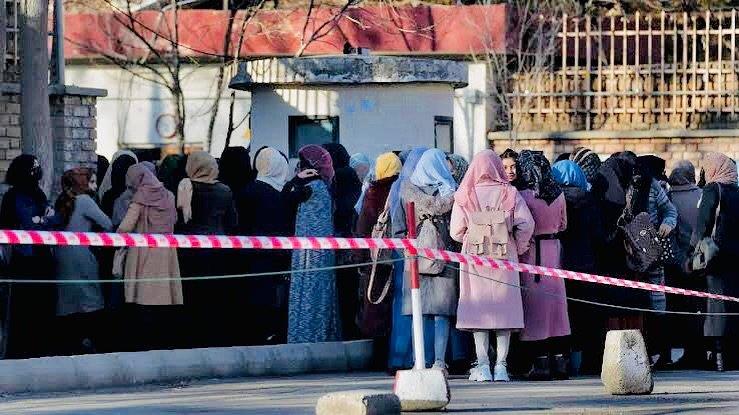
Afghanistan Needs Both Male And Female Doctors: Fasihuddin Fetrat
In a statement issued on Friday, December 20, by the press office of the Taliban's army staff, Fasihuddin Fetrat made these remarks during a meeting at the Command of the Medical Sciences Academy of the Taliban's Ministry of Defense.
The head of the Taliban's army staff further emphasized,“Studying medicine is a necessity within a system.” He highlighted the importance of both male and female doctors to serve the Afghan community.
Fetrat also reassured that efforts are ongoing to resolve the issues within hospitals and health centers, stressing that the health and medical conditions in Afghanistan would continue to improve.
These statements come at a time when Mullah Hibatullah, the Taliban leader, issued a decree that closed the last remaining educational doors for Afghan women and girls.
The closure of educational institutions, particularly medical ones, for girls has sparked sharp criticism both domestically and internationally. This controversial decision has raised concerns about the future of education and healthcare in Afghanistan, especially for women.
While the Taliban government continues to push forward with its stance on restricting women's education, its apparent acknowledgment of the need for female doctors underlines the ongoing contradictions in its policies. The closure of educational institutions for girls, especially in the medical field, is creating a significant barrier to the development of a qualified healthcare workforce in the country.
The international community and Afghanistan civil society have strongly condemned the Taliban's actions, especially as they impact women's rights and access to education. The growing backlash against the Taliban's policies highlights the critical need for reforms that not only address gender equality in education but also ensure the country's medical and health sectors are equipped to serve all citizens, regardless of gender.
ShareFacebook Twitter WhatsApp Email Print Telegram
Legal Disclaimer:
MENAFN provides the
information “as is” without warranty of any kind. We do not accept
any responsibility or liability for the accuracy, content, images,
videos, licenses, completeness, legality, or reliability of the information
contained in this article. If you have any complaints or copyright
issues related to this article, kindly contact the provider above.


















Comments
No comment